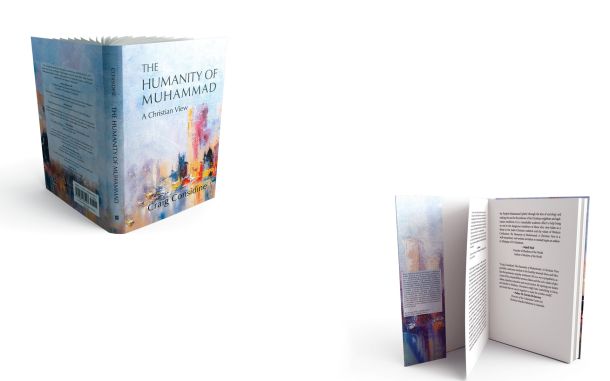Embodiments of Rectitude

In This Article
-
Embodiments of rectitude are aware of the fact that they are mirrors to the Divine and that they are created as an index for all existence and worlds.
-
Throughout history, those who took their shadow behind them and always walked with their face turned to the sun reckoned and came to grips with themselves with a different depth.
There are some exemplary people who we may call “embodiments of rectitude.” These exceptional people look at life with a holistic view. They see things correctly, they think correctly, and they attach their every initiative with a consideration for truth. They move forward between the carnal soul and what lies beyond their nature always with this consideration in mind. They turn the lens of their willpower and consciousness to behold their inner world and check with their essential nature; then they turn it to beyond and further beyond and open up to the Creator. They give an account of their situation to Him, renew their covenant, and humbly prostrate themselves. They are aware of the fact that they are mirrors to the Divine and that they are created as an index for all existence and worlds.
With such an all-comprehensive awareness, these people always endeavor to act in accordance with the purpose of their creation and frequently supervise their inner worlds. They come to grips with themselves and keep vigilant against contamination of their considerations. They live with an alertness to not allow any darkening of the heart and rusting of the spirit. Most of the time, with a concern for having contaminated them, they run to purifying basins of turning to God, and they constantly sigh with the thought that they failed to give the due of the honor of being the best of creation.
They never open the door of their imagination to any form of filth; let alone that, they shake like a leaf fearing the possibility of the least contamination of their dreams or conceptions and fog of stagnancy. In the face of such a possibility, they start seeking fresh means of turning to God. Their hands always on the knob of Divine mercy and forgiveness, they lead an angelic life. Given that they are heroes of closeness to God and are burning with a love for reunion with Him, then their way should be the lane of ardent longing for reunion with God. This should be the staircase of overcoming one’s own remoteness and attaining togetherness beyond forms with Him Who is closer than the closest to us!
Those who did reach the horizons did so with such resolution and great effort; as for those entangled by the web of their fancies, however, they remained halfway on the road.
Throughout history, those who took their shadow behind them and always walked with their face turned to the sun reckoned and came to grips with themselves with a different depth. They trembled with concerns for falling on account of things they saw or assumed they saw in their hearts, spirit, conception, and imagination. As their feelings, excitement and worries were reflected in their words, they kept sighing and sincerely implored God Almighty.
From Prophet Muhammad the brilliant moon, peace be upon him, to the stars that gathered around his perfect guidance, all of the embodiments of rectitude have become loyal journeyers on the path of the Prophets leading to a reception with the Divine, and they have presented exemplary behaviors that will never misguide later generations who follow their footsteps. May their way be clear and may the All-Merciful Lord render us journeyers of that path, too!
Now, let us try to push a door to look at the example of Prophet Muhammad, peace be upon him, who is for us the unique vanguard of this road, the most distinguished and blessed guide of all time. Let us have a vista to see his example and come to grips with ourselves, with the acknowledgement that our own situation could only be that of a drop in the ocean.
The Prophet, the blessed master of the created and who had the utmost closeness to God, would open up to Him with an expansive state of his spirit, attitude of self-possession, and a consideration of guiding those behind him; and thus, his morning was a separate session of vigilance, and his evening was a different time of turning to God. And he would pray as, “Glorified are You, O God!” And although sins did not visit him even in his dreams, he would say, “I seek Your forgiveness for my sins, and I ask You for Your mercy.” [1]
Thus, the Messenger of God would show the way to exercise self-supervision to his followers and present an astounding attitude of humbleness and effacement. Likewise, when daybreak drew near, his sincere petitioning was like a wake-up call for those who heedlessly indulged themselves in sleep and an admonition to the fluctuant. He would touch the doorknob of Divine mercy by beseeching as follows:
I seek refuge in You from wronging others and being wronged, from committing aggression and being the object of aggression, and from committing an error or committing a sin which is not forgiven. [2]
He did this even though these were miles and miles away from even entering his world of imagination. How I wish if only a quarter of this opening up to God were found within us and leaders of our nations.
Even before he was commissioned as a Prophet, and certainly after he was, at almost every phase of his blessed life he kept his carnal soul and fancies under control; in spite of this, he met every new sunrise with diamond words of supplication rising from his heart, in a manner of self-possession: “My Lord, truly if you leave me to myself, You leave me to weakness I cannot bear, an overwhelming need, sin and error.” After voicing his petition with these words of his vigilant soul, he would conclude his blessed appeal befitting him so well with the following expressions: “Truly I rely on nothing except Your mercy, so forgive me all my sins, for no one forgives sins except You” [3]. He prayed thus as if he ever had any sins!
He continued opening up to God and against the carnal soul and Satan, who could not even visit his world of imagination. He said the following, which I think was actually a way of giving counsel to his followers:
My God, I seek refuge in You from the evil of my self, the evil of Satan and his traps, and from committing wrong to myself or another Muslim. [4]
He would repeat these sincere sighs four times. Such a manifold degree of self-possession and deliberation! He would not suffice with these, holding the doorknob of mercy, Divine protection, and guardianship, he would pray as:
Ya Hayyu Ya Qayyum (O Giver of life and Who maintains it)! For the sake of Your Mercy, I beg for help. Rectify all my states of being and leave me not to myself even for the blinking of an eye! [5]
Let his example illuminate the blind eyes and deaf ears of those who stumble through their lives. He was so sensitive and vigilant against the carnal soul and fancies that even though he was miles away from them, they did not—could not—cast a shadow on his radiant world of thought. We take a step back again and once more give an ear to the deep sighs and petitioning of that sultan of speech: “I seek refuge in You from the evil of my soul and from the evil of every creature in Your grasp.” What vigilance! What an immense feeling of self-possession!
Even his archenemies did not, could not, dare ascribe the least degree of vice to him. Both before his mission as the Messenger of God and afterwards, he was acknowledged by all as the most trustworthy person. Yet, as if he had any shortcomings, he would pray, “O Allah! Conceal my imperfections and calm all my fears!” [6]. How exalted he is! He certainly did not have any shortcomings, but let us take this prayer as the guide’s counsel for us who need guidance.
In terms of his considerations of awe and reverence before Divine grandeur, he had a heart that always shook with fear of God. In this respect, he was marking the course leading to true virtue for those to follow his way. Saying that he would sleep at night like we do is gross disrespect against him, because he had settled this issue, too, by stating “my eyes do sleep, but my heart does not” [7]. However, even when that distinguished soul who surpassed angels was to enter his special sleep, he would earnestly turn to God wholeheartedly and say:
O God! in Your name have I laid down on my side. Forgive me my sins and drive away my devil; release me from my dependency (on others) and place me in the highest assembly! [8]
In spite of his much lauded and distinguished position, he was teaching so much to us even with that deep sigh. His Ascension to the heavens (mi’raj) was blessed with the gift of daily prayers (salah), and his prayers were each like a new Ascension [9]. While he was heading to perform his prayers, which is like an earthly ascension, he would be imbued with perfect goodness (ihsan) in all of his attitudes; and when he started the worship at God’s beck and call, the following blessed words would come out of his lips as a beautiful expression of the deed being observed:
O God, You are the Owner, there is no deity other than You. You are my sole Lord, and I am your servant. I have wronged my soul; I confess my sin—[O dearest innocent soul, which sin are you talking about!]—please forgive all of my sins; no one but You can forgive them. Guide me to good character, as only You can grant guidance! [10]
These prayers are meant to call us, too, to those horizons. May God also bless us with that complete guidance. His distance, from what he mentioned as “sin,” was further away from the distance between East and West, but against things he considered wrong—wrongs did not even visit his dreams—he opened up to God and moaned with utter self-possession and a vow of perfect goodness:
O God, distance me from my misdeeds as You have distanced the East from the West!
O God, wash away my sins with pure water, snow, and hail! [11]
What a profundity it is, my dearest beloved one! You are the one poets praised as:
You are the glorified sultan of the Prophets, my master
You are a majestic bestowal to helpless ones, my master
You are the chief in the Divine Council, my master
You are the one affirmed by God’s swear by your life, my master. (Sheikh Galib)
O the light of my endeavor and my shining sun, you are speaking in the first person and imploring God; yet, by doing so, if you are calling us to be ourselves on your blessed path, we have been alienated to those horizons with our degenerates and leaders. That being the case, our dreams are filled with hopes, and we are expecting your favor upon us; for the sake of God, do not make us wait further!
Just as you looked at those in your special circle,
Please grant a look at this humble one also,
And let me burn ablaze with your sacred love.
Let my atmosphere not be darkened with the sadness of being without you,
Please say, “he is also from me,” so that I do not remain distant from you. (F. Gülen)
We learned from you that prostration is the state when a person is closest to God [12].
Where the head meets the feet, kissing the prayer rug on the ground
Is the road that carries a person to closeness to God. (F. Gülen)
The Prophet used to put his head on the ground very humbly, his blessed head that never bowed before anyone other than the Almighty, and he would open up to God with different words and implored Him as follows:
My God, please forgive all of my sins [my innocent sultan of sultans, your Lord did not let you commit sins in the past, and with your loyalty He sealed all doors and windows to sin for you] [13]. O God, forgive me for all my sins, the greater and the minor, the first and the last, and the openly known and those kept secret! [14]
If only those who spend their lives in the filth of sins could also understand these moans and sighs loftier than breaths of angels! Unfortunately, those who said farewell to a life centered on realizing the heart’s potential are unaware of the horizons of the spirit and will neither feel nor understand these sighs.
As he knelt down during his prayer (tashahhud) where he felt to the core his closeness to God and realized peak spiritual delight, he moaned again to the profundity of his own knowledge of God and showed how unreachable his spirit is with the following words from his heart, which are in fact meant to be reminders for unknowing ones like ourselves:
O God, truly I have greatly wronged my soul, and no one forgives sins except You, so forgive me with Your forgiveness, and have mercy on me, for You are the All-Forgiving, the All-Compassionate. [15]
If only we could also moan wholeheartedly for our lagging so far behind that guide, the Messenger of God who would always woe for certain heart-darkening conditions, which might hold true for us any time and, yet, were so far away from his horizon:
O God, I take refuge in You from a hard heart, heedlessness, poverty, humiliation, and deprivation. I take refuge in You from want, unbelief, immorality, divisiveness, pretentiousness, and ostentation...[16]
I don’t know whether such degree of vigilance and sobriety is ever felt by anyone else in such an astounding profundity. I do not think so and nobody else can deem it possible...
At the end of our discussed topic, which is like a drop from the ocean in terms of the Messenger’s imploring and petitioning, I say, “the subject is not over, yet to be also covered are the purest souls from his circle. And I beg forgiveness from God on account of my mistakes...
- Abu Dawud, Adab 107.
- Ahmad ibn Hanbal, al-Musnad 5/191; Tabarani, al-Mu’jamu’l-kabir 5/119.
- Ahmad ibn Hanbal, al-Musnad 5/191; Tabarani, ad-Dua, p.122.
- Tirmidhi, Daawat, 105, Ahmad ibn Hanbal, Al-Musnad, 2:171.
- Abu Dawud, Adab 101; Ahmad ibn Hanbal, al-Musnad 5/42.
- Abu Dawud, Adab, 100, Ahmad ibn Hanbal, Al-Musnad, 2:25.
- Bukhari, tahajjud, 16, tarawikh 1; Muslim, Salatu’l-Musafirin 125.
- Abu Dawud, Adab 107; Tabarani, Mu’jamu’l-kabir 22/298.
- One of the major miracles of Prophet Muhammad, peace be upon him, was his journey from Mecca to Jerusalem, and from there to the heavens. In this miraculous journey into heavenly dimensions, he met with other Prophets and eventually God. One of the gifts of this journey is daily prayers (salah), which Muslims are commanded to observe five times a day.
- Muslim, salatu’l-musafirin 201; Abu Dawud, salat 124.
- Bukhari, adhan 89; Muslim, Masajid 147.
- Muslim, salat 215; Abu Dawud, salat 148; Nasai, mawaqit 35, tatbiq 78.
- Fath 48:2.
- Muslim, salatu’l-musafirin 201; Abu Dawud, salat 118; Tirmidhi, daavat 32.
- Bukhari, Adhan 151, Daawat 17, Tawhid 9; Muslim, Dhikr 48.
- Ibn Hibban, Sahih, 3/300; Hakim, al-Mustadrak, 1/712.









